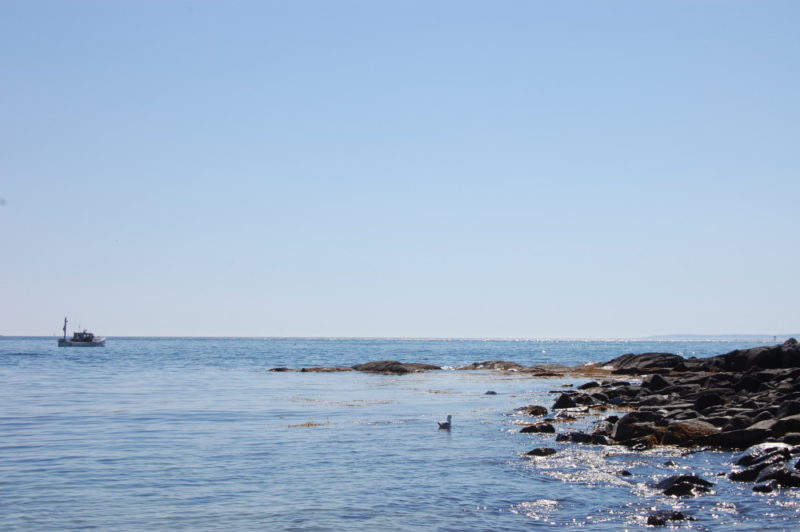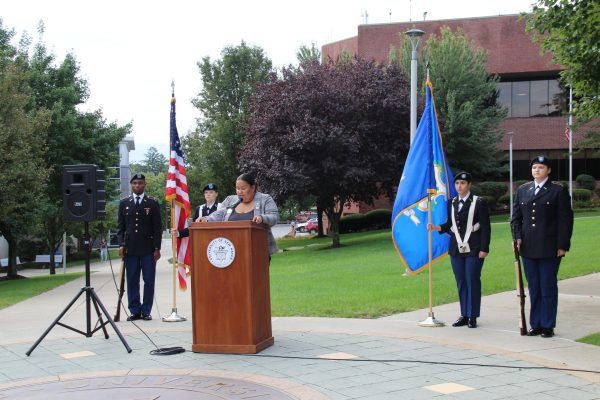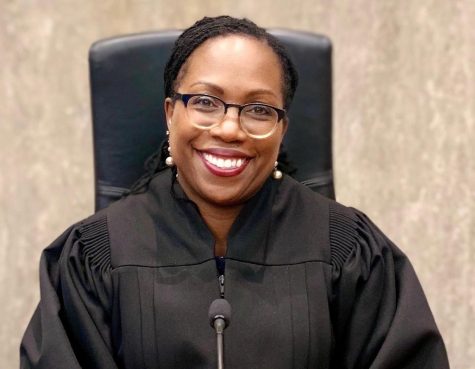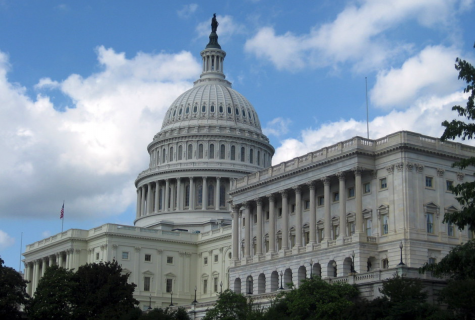New Plans to Combat Climate Change Through Ocean
The first ocean plans, in response to President Obama’s 2010 executive order, were released by the National Ocean Council on December 7. The Mid-Atlantic Ocean Action Plan, submitted to the council in November 2016, encompassed Delaware, New Jersey, Maryland, New York, Pennsylvania, and Virginia. The Northeast Ocean Plan, submitted to the council in October 2016, encompassed Connecticut, Maine, Massachusetts, New Hampshire, Rhode Island, and Vermont. The plans are similar in nature, with the difference being that the Mid-Atlantic stresses action and the Northeast stresses awareness.
These plans are the first of many to come from the executive order, which established the National Ocean Council in 2010 and mandated that all regions establish an ocean planning initiative.
The Northeastern Ocean Plan is unprecedented by any other. Rather than being an action plan, it is more of an awareness document. It includes the construction of major databases, open to the public, with a plethora of ocean data that has never before been so centralized and cohesive. The information includes everything from shipping routes to whale migrations and fishery spots.
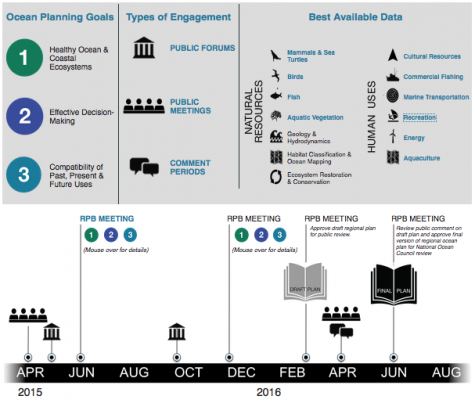 “The goal was to commit the federal government to using a broader context of ocean information to make their decisions in a more transparent and informed way. We wanted to engage the public and ocean users in these plans,” said Betsy Nicholson, North Regional Director at the NOAA Office for Coastal Management, and Chair of the Northeast plan.
“The goal was to commit the federal government to using a broader context of ocean information to make their decisions in a more transparent and informed way. We wanted to engage the public and ocean users in these plans,” said Betsy Nicholson, North Regional Director at the NOAA Office for Coastal Management, and Chair of the Northeast plan.
Nicholson stresses transparency to the public, accountability of the federal government, and predictability to industry. “Better information for better decisions” has become the unofficial slogan for the plan.
Collaboration has become crucial as the amount of ocean users increase, and industries like off-shore energy and aquaculture rise in popularity. It has become necessary to establish a method of dealing with ocean industry that works on all sides.
“There has been an increase in things that don’t move in the ocean – wind farms, off shore energy – we need to make sure those are in the right place, not affecting fishing lanes or fishing areas or tribal areas,” said Sean Kline, Director of Maritime Affairs at the Chamber of Shipping of America.
It is the proactive planning aspect that makes the plan truly unprecedented. In the past, one industry would create a proposal with no information regarding any other industries. The new databases are designed to make future proposals more efficient and approvable.
It is not just the industries that will benefit from the new plans. This was the first time that tribes had ever been invited to ocean planning. Ten recognized tribes across New England were invited, and six were in attendance. They brought an interesting conservation perspective to discussion, representing the local feeling towards to ocean and the industries that use it.
“This offered a totally different, very healthy perspective,” said Nicolson.
The plan allows ocean planning that is beneficial to all ocean users, all while conserving the important health and diversity within the ocean.
“Our oceans and waterways support a myriad of marine ecosystems and host a wide array of commercial and recreational activities. As the result of significant engagement, data acquisition and development, and careful consideration that involved a multitude of diverse groups and individuals, the Northeast Ocean Plan provides a unique opportunity for federal and state agencies, tribes, fishery management council, and stakeholders to collaborate and improve stewardship of our oceans. From a state perspective, this plan represents an important new framework to improve our knowledge of these areas and make smarter decisions about managing our coastal waters,” said Bruce Carlisle, Director of Massachusetts Office of Coastal Zone Management.
“Ocean planning gives us a way to work together, plan together – make room for each other.”
— Bruce Carlisle
While this is certainly great news for ocean planning, there is concern about what will happen with the plan with the upcoming presidential administration.
“No one knows what will happen, we in DC have been able to predict in the past, but this is not the case for the next four years,” said Kline. He continued saying, “I would hope that all the work that went into the two plans doesn’t just get disregarded.”
Nicolson is not losing hope.
“Industry has a voice in politics and we’ve been having an ongoing conversation with all these agencies. The messenger is going to matter,” she said. “Hopefully people will continue to do the right thing. Hopefully the right thing will prevail. I am not going to losing faith. And no one here in New England is either.”
————————————————————————
Correction: An earlier version of this article had an outdated quote from Bruce Carlisle.

Karina Krul is a senior marine biology major with a triple minor in psychology, political science and marine affairs. This is her fourth year with The...

